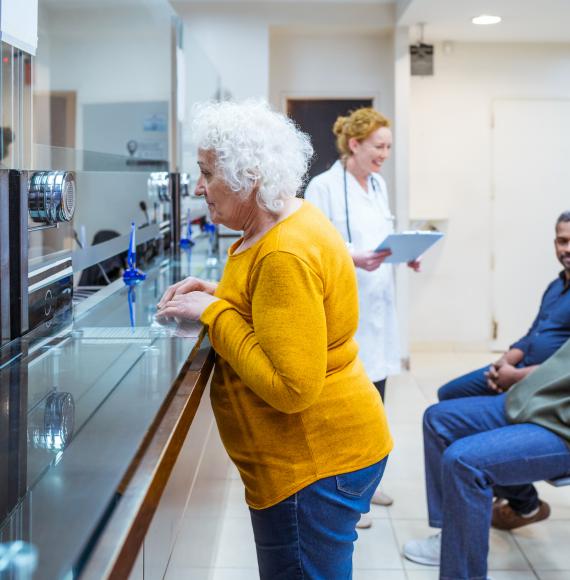The Care Quality Commission (CQC) has published its annual inpatient survey.
The study took data from people who stayed at least one night at hospital during November last year and were aged 16 or over at the time.
Almost three in four people said they ‘always’ got answers to questions in a way they could understand from doctors and nurses (72% and 73% respectively) – although this has decreased by one percentage point for each compared to 2021.
Around four in five ‘always’ had confidence in their doctors and nurses (81% and 79%), which is unmoved from 2021.
On being included in conversations, approximately three in four respondents reported that doctors and nurses ‘always’ did (74% and 75%); this represents a one percentage point increase for doctors.
Key areas for improvement found in our Inpatient Survey:
— Care Quality Commission (@CareQualityComm) September 12, 2023
🕑 Waiting Times
👩🏽⚕️ Staffing Levels
🛌🏽 Patient Discharge from Hospital
🏥 Overall Experience#InpatientExperience pic.twitter.com/gAuSngG7fQ
Areas of improvement
More than one in five (22%) elective patients said they would have wanted to have been admitted ‘a bit sooner’ with slightly less (17%) preferring ‘a lot sooner’. This compares to 20% and 16% respectively for 2021.
Three in five (61%) were agnostic in this regard, which is a decrease (65%) from 2021.
Over two in five (41%) elective patients said their health deteriorated while waiting for admission, while nearly one in five (18%) reported that they had to wait ‘far too long’ to get a bed after admission.
The amount of people waiting ‘far too long' for a bed has increased by 10 percentage points since 2020.
A similar negative swing was observed in nursing capacity, as only slightly more than half (52%) of people thought there were ‘always’ enough staff on shift – this is a 10 percentage decrease from 2020.
Almost two in five (38%) said they were ‘a great deal’ involved in the discharge decision-making process, which is the same as 2021.
Almost one in five (17%) said they were ‘not very much’ involved and nearly one in 10 (8%) said they ‘not at all’ involved.
Only around half (48%) thought they were given enough notice when they were leaving hospital – a two percentage point decrease from 2021.
The amount of people who ‘definitely’ knew what the next steps were for them after leaving hospital remained the same at nine in 20 (45%).
The top-end of the reported overall experience also saw a slight decrease, with half (50%) of respondents rating their inpatient care with a ‘9’ or ‘10’. This was two percentage points higher in 2021.
The amount of people who had a very poor experience remained unchanged from 2021 at less than one in 20 (4%).
Director of the NHS Confederation’s acute network, Rory Deighton, commented: “Our own research shows that patients still very much support the founding principles of the NHS and recognise and understand the serious challenges it faces.”
He continued: “The CQC’s findings further show the effects of these challenges and should give greater impetus for fixing them via the long term workforce plan, sustained capital investment, and a plan for social care to help get people out of hospital and prevent the need for them being there in the first place.”
More information on the survey is available here.
Image credit: iStock



















